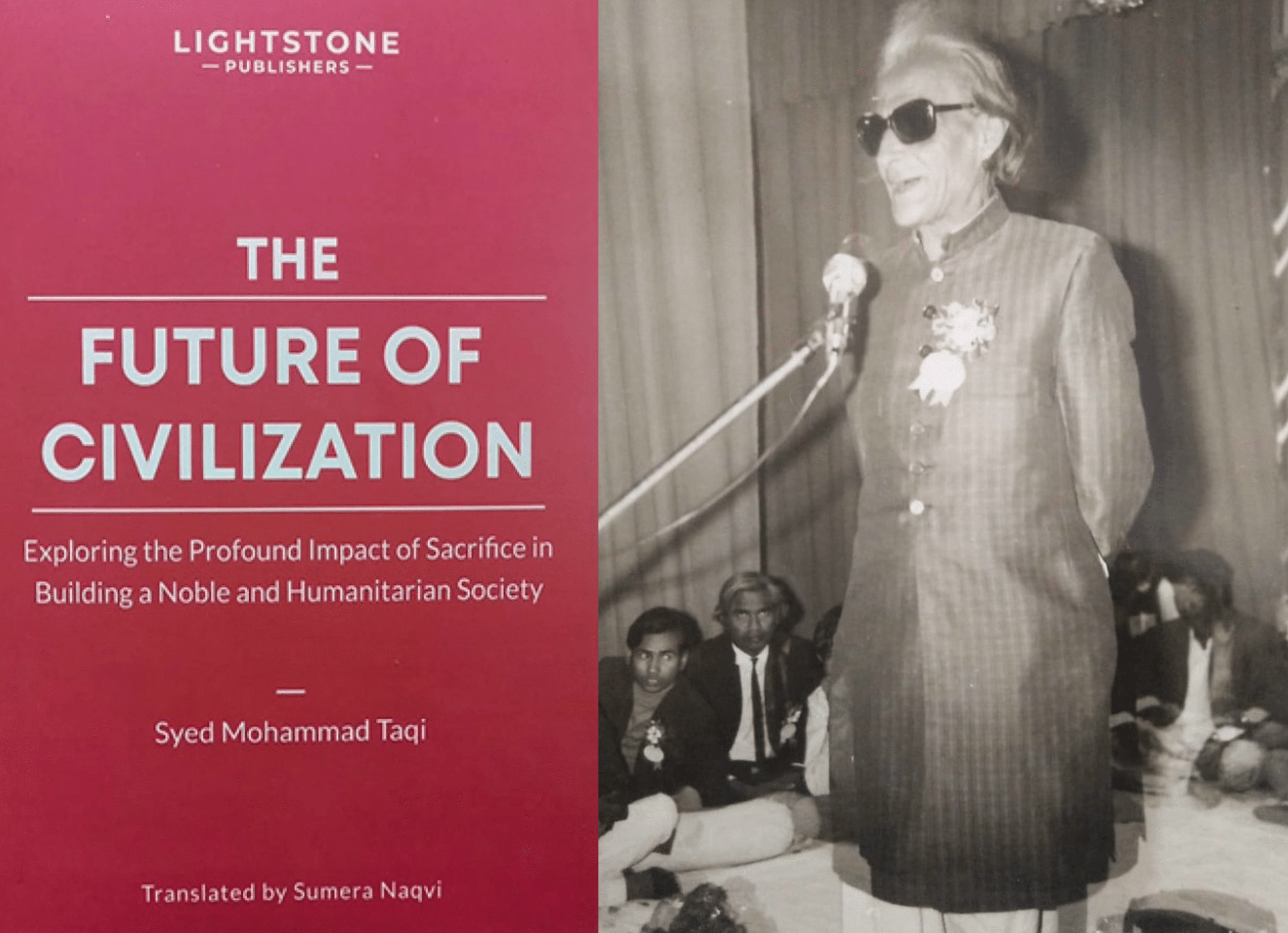Posted on August 24, 2025
Karachi:
The philosopher, intellectual, writer and journalist Syed Mohammad Taqi does not need an introduction. However, for those who have weak memories, Taqi was an eminent philosopher, historian, scholar, thinker and writer, and remained editor-in-chief of Jang for almost twenty-five years. He has written a lot about subjects of philosophy, politics, religion, history, culture, economy, sociology, literary criticism and constitutional theory.
Besides his book Magnum opus Taarikh Aur Kainat: Mera Nazariya (History and the universe: my point of view), other books written by him include Mantiq, Falsafa Aur Science (Logic, philosophy and science), Rooh Aur Falsafa (Soul and philosophy), Hindustan: Pasmanzar Peshmanzar (Hindustan: background and foreground), Nahjul Balagha ka tasawwar-e-ulubiyat (The concept of divinity of Nahjul Balagha. It has also translated many English books into Ourdou, including the translation of Karl Marx Das kapital He has earned him world praise.
It was a pleasure to receive a copy of the English translation of his book, Karbala: Tehzeeb Ka Mustaqbil (Published in 1980), by his granddaughter Sumera Naqvi entitled Future of civilization: exploring the deep impact of sacrifice in the construction of a noble and humanitarian society.
Naqvi, like his illustrious grandfather, is a journalist; She began her career with The news and later moved to Dawn. In 2014, she entered the development sector, working on mental illness, education and poverty reduction.
The book Karbala: Tehzeeb Ka Mustaqbil milking philosophical themes of moral collapse, the crisis of modernity and The impact of sacrifice on society, And explores how the moral drift of modern civilization can be confronted by reconnecting with the historical heritage – in particular the lasting symbolism of Karbala.
Although the events leading to the tragedy of Karbala are discussed at length, it should be kept in mind that it is not a religious book devoted to the history of Karbala, but a philosophical book which Bring Karbala’s message to the modern reader and philosophically analyzed why Karbala, in particular the timeless stand of Imam Hussain, was an unequaled moment in human history.
The author argues that “humanity today is faced with a serious moral deficit which prevents human civilization from evolving into a truly noble and humanitarian society. Morality is at the heart of civilization, and moral and ethical values can help make a society more liberal and pluralist. ”
Taqi Sahib emphasizes the crucial need to find role models in history that have made monumental sacrifices to maintain civilizational values which contribute to building a civilized society and focused on man. He invites readers to reflect on the criminal of the sacrifice, ethics and civilizational crisis of our time.
With penetrating insight, the author examines the delicate balance between political power and moral principles, the right to dissent and the true sense of spiritual leadership. He invites readers to consider how Karbala’s lessons can shape our approach to contemporary ethical dilemmas and social justice.
Taqi Sahib does not limit his speech in the place of Imam Hussain in Muslim society, but also explores his position in the history of civilization. He writes that throughout history, many noble and religious individuals have made sacrifices to maintain moral values essential to the evolution of society. Raising the question of knowing if all men making sacrifices for moral values are considered equally worthy of admiration, he declares that the answer to this question is affirmative, however, it is important to consider the values behind a sacrifice; You also have to see what the values were for which the imam hussain sacrifices his life.
The author establishes fascinating parallels between the Imam Hussain and other important historical figures such as Socrates and Jesus Christ, illuminating the unique nature of the sacrifice of the Hussan Imam and his lasting relevance. He writes that if the sacrifices and perseverance of Socrates and Jesus Christ are held high in the field of moral values, certain distinctions in the nature of their sacrifices cannot be ignored. Hussain’s decision to support its values and principles illustrates the moral and civilizational values raised in history by balancing good and evil.
In various places during his discussion, the author asks questions inviting readers to think, then to explain. He builds his arguments but does not make judgment, leaves the reader to accept it or not.
In the note of its translator, Naqvi invites the readers to reflect on the point raised by his daughter: should the imam Hussain be described as a victim or a savior of circumstances in the tragedy of Karbala?
Translating a book is not a breeze because for it needs to order both on the original language and the one in which it is translated. And to translate a book by someone from Syed Mohmmad Taqi is definitely a feat, especially since he is known that Taqi Sahib spoke and wrote and wrote a complex and complex Urdu. Naqvi must be complimented and recognized for its ability to translate it into English favorable to readers, while remaining faithful to tone and intention. As Naqvi says in his note, “it’s a love work for my grandfather” and it took him more than two years to translate it.
Ricewana Naqvi is an independent journalist and tweets @naqviriz; It can be reached [email protected]
All the facts and information are the sole responsibility of the writer




